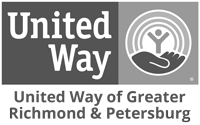Meal planning should include the types and amounts of food to meet the nutritional needs of the client.
How many calories do older adults need?
A woman over 50 who is:
Not physically active needs about 1600 calories a day
A man over 50 who is:
Not physically active needs about 2000 calories a day
Food we need as we age:
Fruit – Focus on whole fruits rather than juices for more fiber and vitamins and aim for at least 2 to 3 servings each day.
Veggies – Color is king! Choose antioxidant-rich dark, leafy greens, such as kale, spinach, and broccoli as well as orange and yellow vegetables, such as carrots, squash, and yams. Try for 2 to 3 cups or more every day
Calcium – Maintaining bone health as you age depends on adequate calcium intake to prevent osteoporosis and bone fractures. Older adults need 1,200 mg of calcium a day through servings of milk, yogurt, or cheese. Non-dairy sources include tofu, broccoli, almonds, and kale.
Grains –Choose whole grains over processed white flour for more nutrients and more fiber. Look for pasta, breads, and cereals that list “whole” in the ingredient list. Older adults need 6-7 ounces of grains each day (one ounce is about 1 slice of whole grain bread).
Protein – Adults over 50 without kidney disease or diabetes need about 1 to 1.5 grams per kilogram (2.2lbs) of body-weight. This translates to 68 to 102g of high-quality protein per day for a person weighing 150 lbs. (0.5 g of protein per lb. of body weight is close enough). Try to divide your protein intake equally among meals. It’s important to vary your sources of protein instead of relying on just red meat, including more fish, beans, peas, eggs, nuts, seeds, milk and cheese in your diet.
Important Vitamins and Minerals
Water – Our bodies lose some of the ability to regulate fluid levels and our sense of thirst is may not be as sharp. Drink water with every meal to avoid urinary tract infections, constipation, and even confusion.
Vitamin B – After the age of 50, your stomach produces less gastric acid making it difficult to absorb vitamin B-12—needed to help keep blood and nerves vital. .
Vitamin D – We get most of our vitamin D intake—essential to absorbing calcium and boosting muscles—through sun exposure and certain foods (fatty fish, egg yolk, and fortified milk). With age, our skin is less efficient at synthesizing vitamin D.






